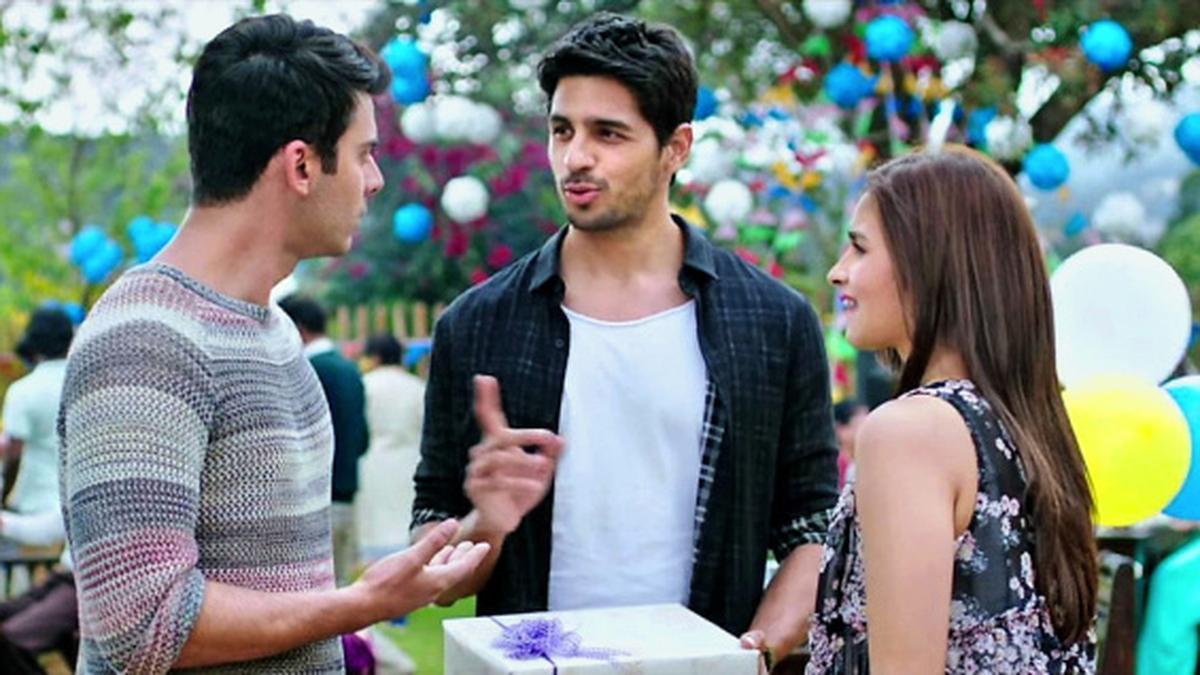
This year, certain work commitments have scuppered my plans to be home for Durga Puja. As I moped and whined and looked up new Bengali restaurants in Mumbai, my thoughts drifted to “The Bear,” which swept the comedy Emmys. In the globally-acclaimed series, Carmy, a top-rated New York chef, returns to his hometown of Chicago after his brother’s suicide. Over three anxiety-inducing seasons, we watch Carmy as he strains every nerve—his and everybody else’s—to turn their chaotic, family-owned sandwich shop into a high-end restaurant. Carmy is advised by his uncle to “be the guy,” to keep his eyes on the ball, yet home—with its unruly sauces and kitchen scars of grief—keeps butting in.
Homecoming is a messy, delicate affair. Over a decade ago, we met a different Carmy, of a lower calibre. The 2012 Hindi comedy “Luv Shuv Tey Chicken Khurana” is a bittersweet take on family, food, and identity. Having stolen from his own grandfather and skedaddled to the UK, Omi (Kunal Kapoor), years later, is forced to return. He takes over his family’s crumbling dhaba, but only a secret recipe, the titular ‘Chicken Khurana,’ now lost, can restore its shine. Sameer Sharma’s film is “The Bear” on a low, gentle flame, and the final reveal is both hilarious and unexpected.
“Maybe that’s all a family really is,” says the protagonist of “Garden State.” “A group of people who miss the same imaginary place.” Watching Zach Braff’s 2004 comedy for this column, I was struck less by the intended poetry of that line than by how much Braff—who was 29 when he starred in his own directorial—resembled Sidharth Malhotra. One of Malhotra’s sturdier performances can be found in “Kapoor & Sons” (2016), a Bollywood comedy with the heart of an American dysfunctional family drama. There is a superlative scene—beautifully choreographed by director Shakun Batra—with the entire family yelling and blame-shifting as a broken water pipe gushes forth. It spills like home.
Not all homecoming films are comedies. There are countless thrillers—the 2020 Australian film “The Dry” comes to mind—where the central character returns to their childhood town and embeds themself in a mystery. Then there are the adoptees, in films like “Lion” (2016) and “Return to Seoul” (2022), tugged by origins and quests that transcend geographies. There are also films that point to the impossibility of return: though Sumit and Priyanka, the eloped couple in “Pokhar Ke Dunu Paar” (2023), are back in Darbhanga, hard-up during the lockdown, they cannot go home.
.
One of the themes that runs through these films is the constant tension between the allure of home and the reality of it. Home is often idealized as a place of comfort and belonging, but as these films reveal, it can also be a source of conflict and unresolved issues. In the hustle and bustle of our lives, we often romanticize the concept of home, imagining it as a sanctuary from the chaos of the outside world. However, these films highlight that homecoming can be just as chaotic, if not more so.
Imaginary places, indeed. Gregory Alan Isakov encapsulates the sentiment in his song “Big Black Car”: “Through the carnival we watch them go round and round // all we knew of home was just a sunset and some clowns.” The notion that our idea of home is often a nostalgic, almost fictional place is a recurring theme in many narratives about homecoming.
For instance, the Australian film “The Dry” delves into the darker aspects of returning home. The protagonist, a federal agent, returns to his drought-stricken hometown after two decades for a funeral, only to get embroiled in a long-buried mystery. The film explores the haunting nature of past memories and the complexities of coming back to a place that has changed—or perhaps hasn’t changed at all.
Similarly, “Lion” follows Saroo, an Indian boy adopted by an Australian couple, as he uses Google Earth to find his way back to his birthplace after 25 years. The journey is both a physical and emotional one, underscoring the deep-rooted need for closure and identity.
“Return to Seoul” takes a different approach, focusing on a Korean adoptee raised in France who visits her birth country on a whim. The film scrutinizes the notion of belonging and the emotional turbulence that accompanies the search for one’s roots.
In a different narrative strain, “Pokhar Ke Dunu Paar” shows that sometimes, even if you do manage to come back to your hometown, you might still be far from home. Sumit and Priyanka, having fled to Darbhanga during the lockdown, find that their return is neither a refuge nor a resolution. Their physical presence in their hometown does not equate to a return to the life they knew.
As we continuously navigate our own complex relationships with the idea of home, these films offer a spectrum of perspectives, reminding us that the concept of home is both universal and deeply personal. From culinary adventures and family dramas to haunting mysteries and cross-continental quests, the theme of homecoming remains a rich vein of storytelling, resonating with anyone who has ever contemplated the notion of returning to where they came from.
From The Hindu cinema team, a fortnightly column recommending films and shows tied to a mood, theme, or pop culture event.
Published: September 28, 2024, 04:37 PM IST












